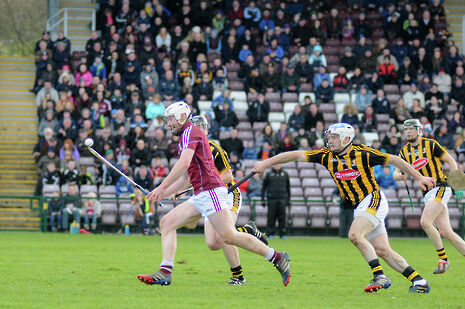Murph’s musings: is money ruining sport?
Peter Murphy looks at the effect of money in sport and asks if the sports we know and love are being corrupted by its influence

‘Money poisons everything’, was my initial position as I approached this article. But as I began to write, the various nuances began to surface as always happens with the act of writing. It brings clarity of dissolution and an accompanying lack of certainty. I am clear that the issue is not that clear-cut. My opening carries with it the pugilistic resonance of Christopher Hitchens, specifically the subtitle of his book Why God Is Not Great: How Religion Poisons Everything. Ironically the tone of his writing is certain in its skewering of religion and its inherent certainty. Money does not so much destroy sport as stratify it; it erects a border between the amateur and professional games. But the point of my digression is that things change in uncertain ways; the march of money into sport will not stop, it must be managed and the essential ordering force must be values.
Rugby is a sport where values remain, yet they are strongest at the bottom and give away to money incrementally as we ascend the professional order. This theme was on my mind on a nice Monday evening at Grange Road as Cambridge University Rugby Football Club, an amateur side of students faced Northampton Saints, a professional outfit competing at the top level in both English and European competition. Throughout the first half they were battered - at least that is what my notes say. But despite the difference in bulk between the sides the real difference was the execution and skills of the Northampton players, for whom England international Tom Wood stood out. Resources play a part here, but the real draw is the accumulation of talent organised by money. Wood, an athletic backrow forward, stood out due to his superior handling and awareness, facilitated by his players' support play. Resources can only develop what is already present; it cannot create an international quality player.
When one thinks of money and sport, football and the Premier League are the most readily available point of reference. The Premiership, in all its capitalist glory, has sucked in players from around the world, and similar leagues in Western Europe have followed suit. The player drain from the southern hemisphere in particular has weakened the international game. This is simply what has happened. What we can now see however, is that Rugby Union is following this trend: south to north in search of cash.
Global professional sport is now a market sector. Yet the difference in the progression of the two sports comes down to class and values. Football, which is traditionally a sport of the working classes, professionalised earlier; if you refute this assertion, look to Rugby League. Values are a luxury good. Rugby at grassroots level prides itself on being a ‘thug's game played by gentlemen whilst football is a gentleman’s game played by thugs’, as the saying goes. This sentiment exposes the inherent hypocrisy of values. Another interesting point is anecdotal: whenever I speak to women who have worked in bars or restaurants they point out that rugby players are far more misogynistic on nights out than their footballing counterparts: values, it seems are suspended in the name of banter and bonding.
Culture is interlinked with sport and capitalism: I state the obvious. A good case study is the refusal to professionalise Irish national sports such as Gaelic Football and Hurling. If you are unfamiliar with these codes get on YouTube now.
Both are community based sports, one parish against the next, county versus county. But wait, parish? Indeed the hierarchy is enforced by a religious organisation. The Gaelic Athletic Organisation was set up to define the young Irish man in terms of his difference from the English during a period of occupation. Apologies for the history lesson, maybe one other Irish person will read this, but at the time of writing I thought, ‘what the hell, I’ll make some English people read about Irish cultural history’. So if, reader, you are English that’s Ireland 1- England 800 (years of oppression). My point is that no matter what, there is a hierarchy held together by a value set.
So the question remains: is money all that bad? Should we have a problem with all those people worshipping at the altar of consumer sport: probably not
 News / Cambridge academics stand out in King’s 2026 Honours List2 January 2026
News / Cambridge academics stand out in King’s 2026 Honours List2 January 2026 Interviews / You don’t need to peak at Cambridge, says Robin Harding31 December 2025
Interviews / You don’t need to peak at Cambridge, says Robin Harding31 December 2025 News / AstraZeneca sues for £32 million over faulty construction at Cambridge Campus31 December 2025
News / AstraZeneca sues for £32 million over faulty construction at Cambridge Campus31 December 2025 News / News in Brief: Maypole mentions, makeovers, and moving exhibits4 January 2026
News / News in Brief: Maypole mentions, makeovers, and moving exhibits4 January 2026 Features / “It’s a momentary expression of rage”: reforming democracy from Cambridge4 January 2026
Features / “It’s a momentary expression of rage”: reforming democracy from Cambridge4 January 2026









